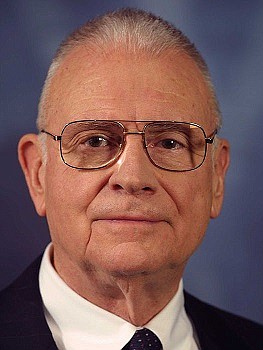May 4, 2023 at 9:55 a.m.
By Lee Hamilton
Creating alliances and exercising diplomacy are key elements of foreign policy, and both are essential for America to play a constructive role in making the world more peaceful and prosperous. Recent developments remind us that these policy tools can be highly successful and deserve our support.
On April 4, Finland became the 31st member nation of the North Atlantic Treaty Organization. The Nordic democracy had long exercised a policy of neutrality in international conflicts, but Russia’s invasion of Ukraine early last year pushed it over the edge. Finland shares an 832-mile border with Russia; Vladimir Putin’s aggression and expansionist rhetoric are a threat.
NATO is arguably the most successful peacetime alliance in history. Created in 1949 by the United States, Canada and 10 European nations, it had the initial goal of containing the expansion of the Soviet Union after World War II. It was remarkably successful, thanks largely to its founding principle: that an attack against one member would be considered an attack against all.
With the collapse of the Soviet Union, NATO took on new responsibilities related to preserving peace. Even so, it was possible to question its relevance. Donald Trump, as president, criticized the organization and complained that other countries were not doing enough to support it.
But with the Ukraine invasion, it became clear that Russia is a threat. NATO has played a key role in supporting Ukraine and uniting the world against Putin. It has helped coordinate assistance and supported the delivery of humanitarian and non-lethal assistance to Ukraine. NATO members have provided extensive military aid, including equipment and weapons. NATO’s guarantee of mutual self-defense has given them the confidence to do so.
There isn’t perfect unity within NATO. Sweden sought to join the alliance along with Finland but has been blocked by Turkey and Hungary. But NATO’s 74-year record of success demonstrates the importance of alliances in supporting democracy and deterring aggression.
Days after Finland joined NATO, President Joe Biden was in Northern Ireland, celebrating the 25th anniversary of the Good Friday Agreement, which largely ended decades of violence between Protestants and Catholics in the region. Diplomatic efforts by the United States played a major role in producing the agreement. It’s a shining example of successful diplomacy.
Religious and political strife in Ireland go back a long way. Ireland won independence from the United Kingdom a century ago, but Protestant majority Northern Ireland remained part of the U.K. Between the 1960s and 1990s, tensions led to a violent era, known as The Troubles, that left over 3,500 people dead and 50,000 injured. According to one count, there were nearly 37,000 shooting incidents and over 16,000 actual and attempted bombings.
Former Sen. George Mitchell, the U.S. envoy to Northern Ireland, worked tirelessly to end the violence. He once said the peace talks included 700 days of failure and only one day of success. Importantly, the successful day was the last one. As Biden pointed out, achieving peace was critical to the region’s financial success and prosperity, which has seen Northern Ireland’s economic output more than double in the past 25 years.
Again, success hasn’t been perfect. There are still occasional acts of violence, and Northern Ireland’s government has been stymied by disagreements over how to manage border issues that arose with Brexit, the U.K.’s departure from the European Union. But there’s no question the Good Friday Agreement changed life in Northern Ireland for the better.
** Lee Hamilton is a senior adviser for the Indiana University Center on Representative Government; a distinguished scholar at the IU Hamilton Lugar School of Global and International Studies and a professor of practice at the IU O’Neill School of Public and Environmental Affairs. He was a member of the U.S. House of Representatives for 34 years.

